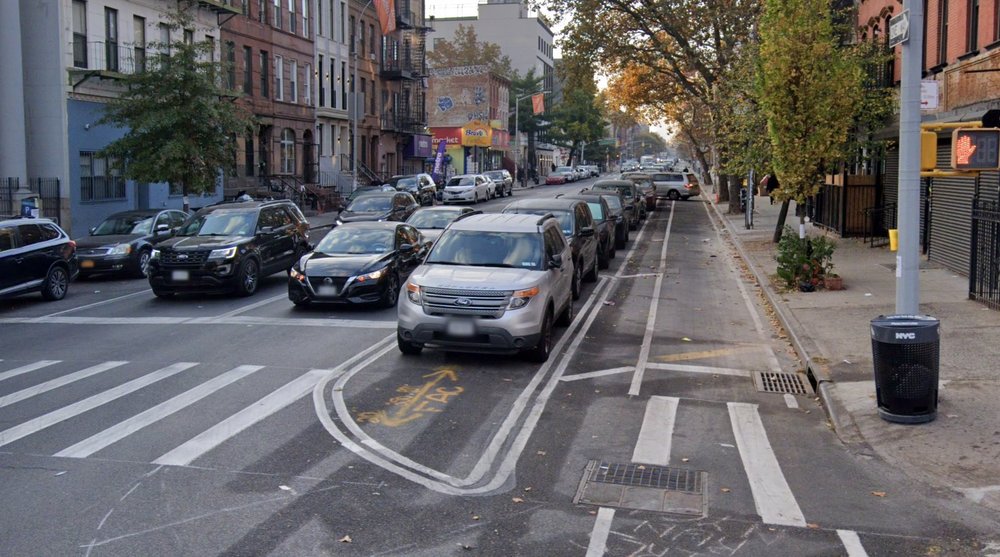Judge lets Mayor Adams remove bike lane protections on Brooklyn's Bedford Avenue
July 9, 2025, 12:39 p.m.
Members of North Brooklyn's Orthodox Jewish community have long complained about the street's bike lane.

A state judge on Wednesday ruled the city is allowed to remove a protected bike lane from a part of Bedford Avenue in Brooklyn, adding to a list of street safety projects reversed or scaled back at Mayor Eric Adams' direction.
The order allows the city transportation department to move the bike lane into the middle of the street and away from the curb on a stretch between Willoughby and Flushing avenues. The lane was installed last year, and allows cyclists to be protected from traffic by a row of parked cars.
Adams last month ordered the change, which prompted a lawsuit by local transportation advocates.
Brooklyn Supreme Court Judge Carolyn Walker-Diallo's ruling represents a political win for Adams, who is running for reelection as an independent and has sought support from North Brooklyn’s Orthodox Jewish communities. Adams’ push to remove the bike lane came weeks after he hosted a town hall in South Williamsburg, where community members have long protested bike infrastructure.
The mayor's order also came after locals raised safety concerns after a 3-year-old Orthodox Jewish girl was struck by an e-bike rider in the bike lane in May.
Advocates in the lawsuit argued Adams could not unilaterally relocate the bike lane without conducting an environmental study, prompting the judge to temporarily halt on construction on the project last month.
But on Wednesday, Walker-Diallo ruled the mayor could move forward with the change because it “is not a major transportation project.”
Walker-Diallo agreed with the city’s argument that the decision to remove the protected bike lane was based on “community feedback, continued illegal parking in drop-off zones, and underutilization of drop-off zones by school bus drivers.”
“A bike lane will still exist at that location,” the judge’s order added.
Adams last week also paused work to install an exclusive busway on 34th Street, according to reporting by Streetsblog. During his first three years in office, the mayor was also criticized for rolling back a series of other street redesigns, like plans to add a dedicated busway on Fordham Road in the Bronx and overhaul McGuiness Boulevard in Greenpoint, Brooklyn.
"Following a needless back-and-forth with elected officials who disregarded the needs of their own constituents, we are grateful that the judge dismissed this case and is allowing us to move forward with reconfiguring the bike lane," Adams' spokesperson Sophia Askari wrote in a statement. "The families of Williamsburg can now rest assured that their children are safe just steps from their homes.”
Ben Furnas, executive director of the advocacy group Transportation Alternatives, which was a plaintiff in the suit, said the decision ignores the bike lane’s safety benefits.
“We’re frustrated by this decision, but all the more incensed at Mayor Eric Adams endangering New York families just trying to get home safely,” Furnas wrote in a statement. “If the Bedford Avenue safety improvements are destroyed, this all but guarantees that there will be blood on Eric Adams’ hands.”
Members of South Williamsburg's Hasidic community have protested bike lanes in the neighborhood for decades. A version of the Bedford Avenue lane was first installed in 2007, but community leaders successfully advocated for its removal two years later.
The city Department of Transportation installed the protected bike lane on the street last year, reigniting debate and ire against the new street infrastructure.
Lawsuit seeks to block Mayor Adams from removing barriers in Bedford Avenue bike lane